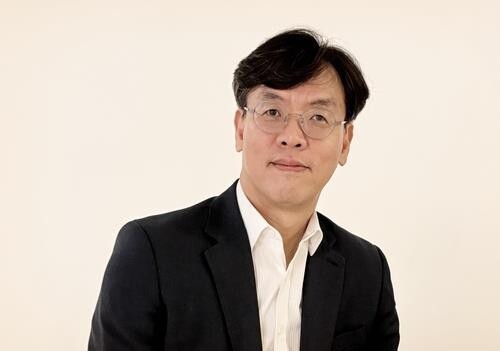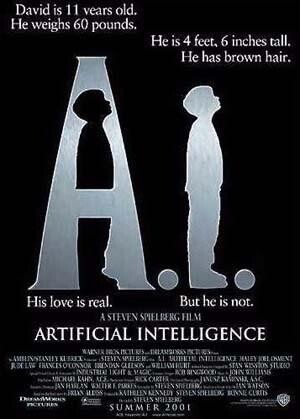*Editor’s note: K-VIBE invites experts from various K-culture sectors to share their extraordinary discovery about the Korean culture.
Matthew Lim's AI Innovation Story: Key Focus for Education in the AI Era
By Matthew Lim, AI expert and director of the Korean Association of AI Management (Former Head of Digital Strategy Research at Shinhan DS)

With the recent spotlight on the Seoul superintendent by-election, the education sector is buzzing with interest.
However, I hope the newly elected superintendent places significant focus on the pressing topic of education in the AI era.
What should we teach, and how should we approach education in this rapidly evolving age of artificial intelligence?
 |
| ▲ A poster of film Artificial Intelligence (AI). (PHOTO NOT FOR SALE) (Yonhap) |
In 2001, director Steven Spielberg released the film A.I., which tells the story of an AI robot boy named David who longs to become a real human. Throughout the film, David grapples with questions about his identity and explores what it means to be truly human. Now, over 20 years since the film's release, the once fantastical elements of the movie are inching closer to reality.
With the rise of generative AI technologies like ChatGPT, society is undergoing profound changes. In a world where AI can write, paint, and compose music, what should we learn, and how should we teach? What should education look like in the AI era?
First, it will become increasingly important to foster human capabilities that are unique to us. While AI can process data and produce outcomes, humans possess creativity, emotions, intuition, and ethical judgment—qualities that are difficult for AI to replicate. Education should emphasize the development of these distinctly human abilities.
For example, we must enhance education that fosters the ability to create and redefine problems. AI can swiftly solve problems it’s given, but defining and approaching issues from new perspectives remains a uniquely human skill. Education should not merely focus on finding the "right" answers but instead encourage students to redefine problems and explore creative solutions.
Additionally, emotional intelligence and communication skills should be prioritized. Despite advances in AI, fully understanding and empathizing with human emotions will likely remain challenging for machines. As a result, the ability to understand others' emotions and communicate effectively will become even more vital in the AI era.
Sex education should also receive increased attention, particularly in light of the rising incidence of crimes involving deepfake technology. Teaching students about healthy perspectives on sexuality and ethical decision-making is more critical than ever.
Sex education should extend beyond mere biological knowledge, focusing on responsibility in the digital realm and fostering respect for others. It is essential to establish ethical standards that prevent students from exploiting AI technologies for harmful purposes. Outdated, ineffective sex education materials must be replaced with engaging and relevant content.
Second, AI literacy education is a necessity. As AI permeates all areas of life, understanding and utilizing AI effectively should become a fundamental skill. AI literacy isn't just about knowing how to use AI but also understanding how it works, recognizing its limitations, and learning how to use it ethically and effectively.
Students must be taught how to critically evaluate information provided by AI. They should be able to assess whether AI-generated content is truthful, biased, or ethically sound. Mastering how to use AI as a tool to enhance productivity and creativity will become an essential part of education.
Third, we must emphasize the importance of lifelong learning. AI technology is advancing rapidly, and the skills required in the workforce will continue to change. Schools should instill a mindset of lifelong learning, fostering self-directed learning abilities, the capacity to quickly adapt to new technologies, and flexibility in responding to change.
Fourth, there will be an increasing emphasis on education that fosters a solid foundation in the humanities. While AI excels at data analysis and prediction, deep understanding of history, culture, philosophical thought, and ethical judgment remain uniquely human domains. These skills will become more crucial in the AI age, highlighting the need for education that integrates technology with the humanities.
Finally, it is essential to develop social collaboration skills. In a world where humans and AI work together, collaboration—both between humans and AI, and among humans themselves—will become increasingly important. Education should focus on developing the ability to effectively cooperate with people from diverse backgrounds, as well as the ability to collaborate with AI systems.
As we enter the AI era, education must evolve to prioritize uniquely human skills such as creativity, emotional intelligence, ethics, and collaboration, while also ensuring that students are equipped with the technical knowledge and adaptability required to thrive in an ever-changing world.
 |
| ▲ Political activists call for counter-measure policies against deepfake crimes in Seoul on Sept. 12 |
It may seem obvious, but the role and importance of teachers in delivering this type of education must never be overlooked. While some aspects of a teacher's role in the AI era might be replaced by AI, there are still many parts that remain irreplaceable. Motivating students, providing emotional support, and shaping their character through social interactions are crucial roles that only human teachers can fulfill.
No matter how advanced AI becomes, it cannot replicate the emotional empathy or ethical judgment of a human teacher. The fundamental goal of education is not merely to convey knowledge, but to help students develop critical thinking, social responsibility, and creativity. While AI can assist in many areas of the classroom, the human teacher remains indispensable in imparting life wisdom, moral values, and character development.
Teachers, now more than ever, are essential guides and mentors who help students navigate the complexities of life and make sound decisions. Education in the AI era must be about cultivating humanity and teaching how to coexist with AI, not just transferring knowledge.
Like David in the film A.I., we must constantly question and explore the essence of being human. The answer to "what is humanity" is not something AI should find to become more human, but rather something humans must seek in order to live humanely. The journey to finding this answer is the direction education in the AI era must take.
The world is at a historic turning point, and it is now time to reflect deeply on the role of education and how it must change to meet this shift. We must begin preparing for educational innovation to ensure a future where humans and AI coexist successfully.
(C) Yonhap News Agency. All Rights Reserved























